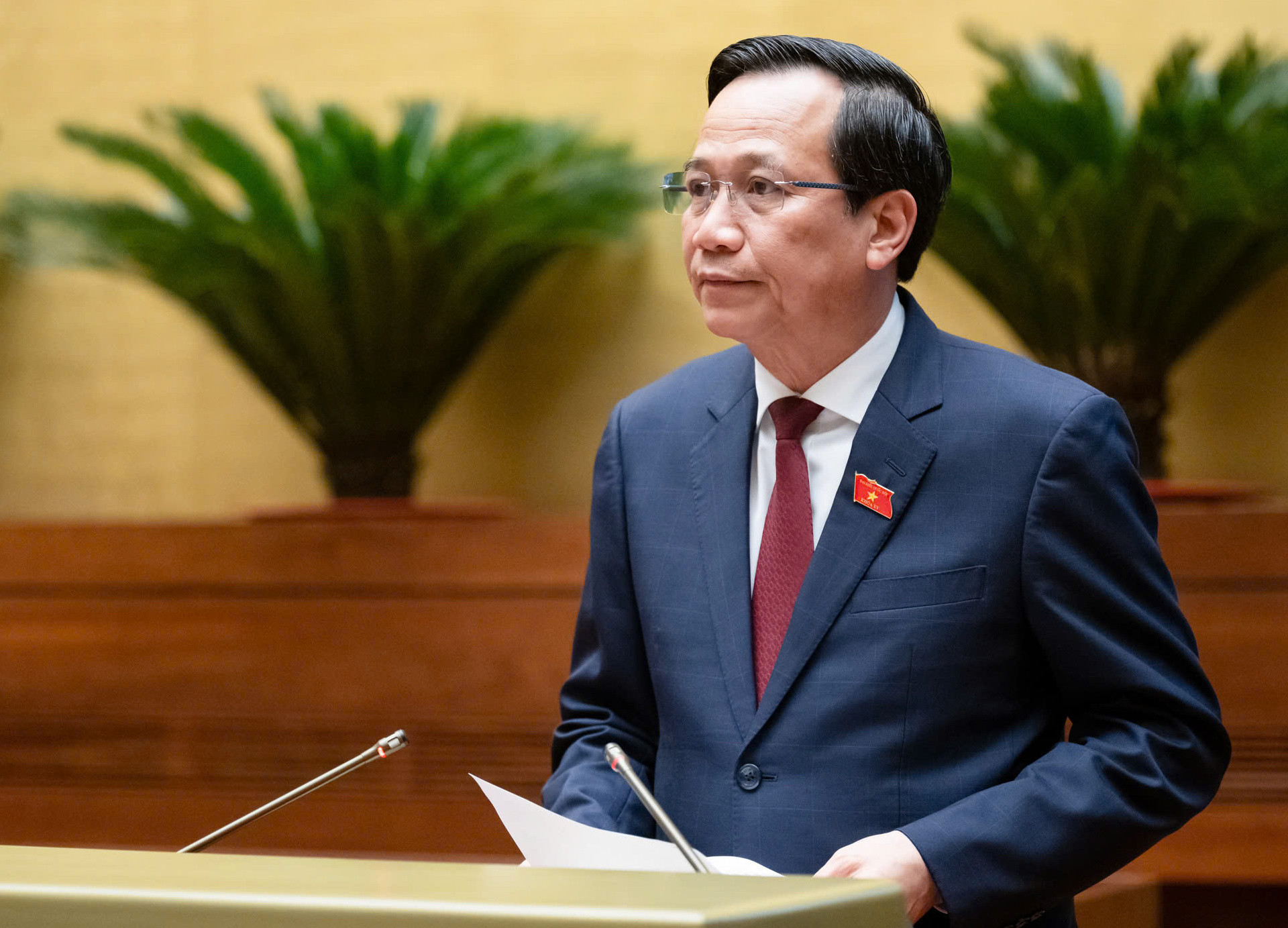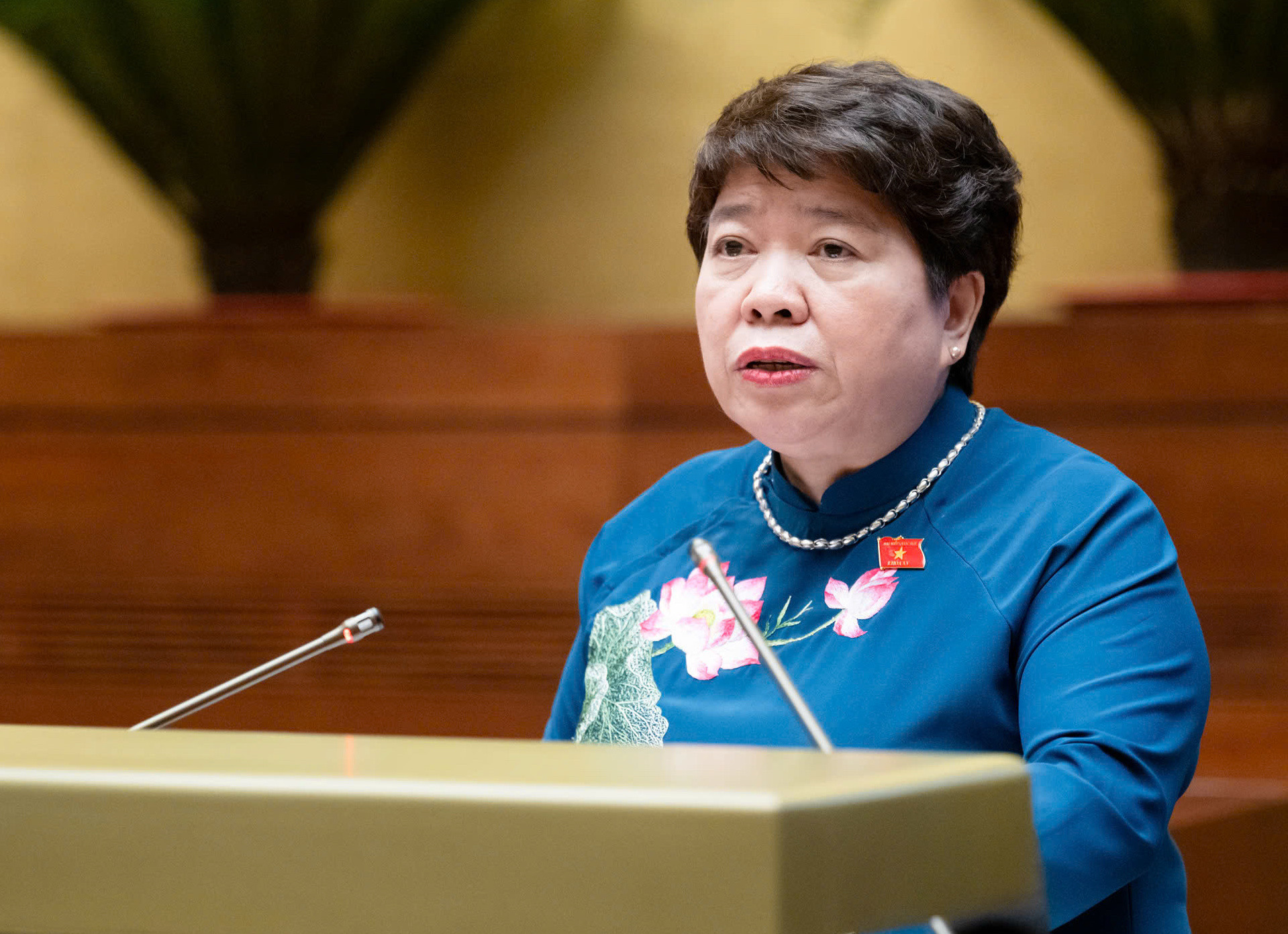On the morning of November 9, Minister of Labor, Invalids, and Social Affairs Dao Ngoc Dung presented the revised draft Employment Law to the National Assembly, highlighting several key policies regarding unemployment insurance.
Expanding coverage for unemployment insurance
Minister Dao Ngoc Dung explained that the government proposes adding two categories of workers to unemployment insurance coverage compared to the current law:
Workers with fixed-term labor contracts of one month or more (currently, this applies to contracts of three months or more).
Part-time workers earning monthly wages equal to or higher than the minimum mandatory social insurance contribution wage.
From 2015 to 2023, the number of participants in unemployment insurance increased annually, with an average growth rate of over 6% per year. By 2023, participants made up 31.5% of the working-age labor force.
Reaching the goal of 45% participation by 2030, as outlined in Resolution 28 on Social Insurance Policy Reform, presents a significant challenge.
The current Employment Law does not comprehensively cover all groups within labor relations, including the two categories proposed by the government.

Minister of Labor, Invalids, and Social Affairs Dao Ngoc Dung presents key reforms in unemployment insurance. Photo: NA
Along with expanding the coverage, the government also proposes more flexible unemployment insurance contribution rates.
Workers would contribute up to 1% of their monthly wages.
Employers would contribute up to 1% of the total monthly wage fund for employees participating in unemployment insurance.
The state would provide a maximum of 1% support, sourced from the central budget.
Minister Dao Ngoc Dung noted that the current law sets a fixed contribution rate of 1% for both employees and employers. This lacks flexibility, particularly in situations such as natural disasters, pandemics, economic crises, or when there are large surpluses in the unemployment insurance fund.
The government also proposed adding a provision to exclude workers dismissed under labor law or disciplined into forced resignation under the public servant law from receiving unemployment benefits.
"Pay-to-receive" principle for unemployment benefits
Commenting on the draft, Chairwoman of the National Assembly's Social Affairs Committee, Nguyen Thuy Anh, suggested that the drafting body should further evaluate the impact of the new provisions and introduce measures to ensure feasibility while addressing current implementation shortcomings.

Ms. Nguyen Thuy Anh emphasized that expanding the categories of eligible participants, as proposed, is not the sole solution to achieving the 2030 target of 45% unemployment insurance coverage. A comprehensive approach is needed, including communication, inspection, and enforcement measures.
The Social Affairs Committee also recommended reconsidering the proposed maximum unemployment insurance contribution rate of 1% of monthly wages.
Additionally, the Committee advised careful review of the provision denying unemployment benefits to workers dismissed or disciplined into forced resignation.
Under current labor law, such workers are already ineligible for severance pay. Therefore, to ensure workers' rights, the drafting body should consider removing this exclusion, allowing these individuals to receive unemployment benefits based on the "pay-to-receive" principle.
Thu Hang